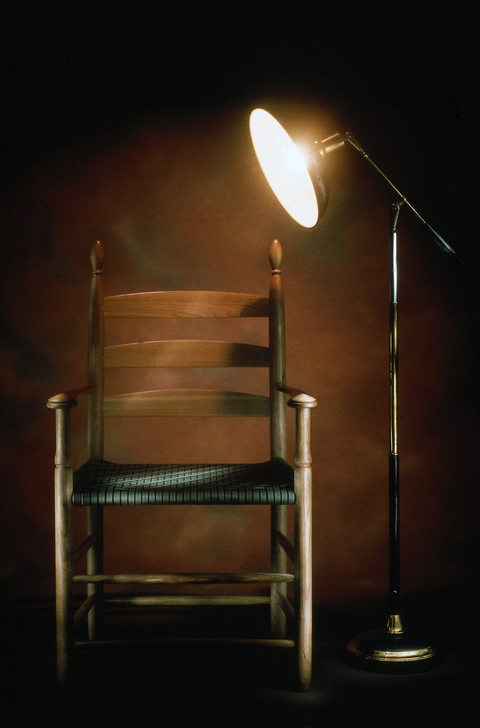Rise Up Review
Coffee in Hell, with Ralph Nader,
Dorothy Day, and Zero Mostel
Someday, when the final trumpet blows and Book of Life is opened up, I will stand for judgement and be forced to confess my sins. My greatest, sin, I am certain, is apostasy.
I will confess to playing the Devil’s Advocate, so often and with such vigor that I have sometimes stayed in character for months at a time; of gross inconsistency in my beliefs and of heaping scorn on the foolish consistency of others; of party disloyalty; of speaking ill of my ideological brethren; of criticizing their foibles and laughing at their absurdities, even when I knew it would hurt The Cause.
I will confess that I do not fully believe in The Cause.
I will confess that while I am sometimes a Leftist, I am also a secret fan of conservative talk radio, because it reminds me fondly of my father, and my uncle, and my older cousins—conservatives all. I will admit to having taken a conservative position sometimes because no one else would, or because I knew it would make a liberal friend or colleague squirm. I relish the opportunity to be the only person in the room holding a flag aloft, and sometimes, I don’t care much what that flag stands for. Contrarianism is my compulsion.
Kierkegaard wrote “the crowd is untruth.” Thoreau said “any man who is more right than his neighbors constitutes a majority of one already.” I want to be a majority of one.
I confess to believing that my crowd was wrong to herd millions of poor minorities into housing projects in the 70s that would have to be demolished thirty years later; wrong to believe in the Clintons and NAFTA and neoliberalism, wrong to abandon class consciousness in favor of identity politics, wrong to deregulate the banks, wrong to be so “tough on crime.”
I will confess to reading and enjoying anarchist books, and the works of Libertarians, and Greens, and even Communists. I will acknowledge that I have sometimes fantasized about “blasting the world free of history,” as Tyler Durden says in Fight Club, of hunting elk through the ruins of Rockefeller Center and “planting radishes and seed potatoes in the fifteenth green of a forgotten golf course.” But I am a hypocrite and far too lazy to vote consistently, let alone topple an entire civilization and live off the land like the Unabomber.
I will confess to being wickedly inconsistent, not because I am fickle, but because I am honest. “Do I contradict myself,” Walt Whitman asked. “Very well then, I contradict myself. I am large, I contain multitudes.”
I will admit to being bored by most political arguments.
I will confess that I do not care if some people believe that the Earth is flat, or that Climate Change isn't real, or that the world was created in six 24-hour days. I believe, as Dostoevsky did, that sometimes there is value in saying 2 X 2 = 5. All tyranny is wrong, even the Dictatorship of Reason.
For these sins, I have already been punished. No one loves a gadfly. America is a country founded by the Puritan “tithingman” whose job was to stand at the front of the Church with a long staff and rap the heads of men who fall asleep during the service. He is still here, lurking in the American unconscious, poking and prodding us to stay awake through the long sermon. Americans respect believers, people of faith, earnest youths, patriots, and soldiers—people with clear convictions. No one loves the guy who can't be pinned down. There is just something wrong with him.
I will confess that belief makes me queasy. I distrust the wild-eyed certainty of believers. They are profoundly insecure. They rattle easily. Believers huddle together for security and then when no one is paying attention, they pull a mask over their faces and try to cleanse the entire area of nonbelievers. Pluralism would be a lot safer if there are fewer true believers in the mix and more heathens, backsliders, secular Jews, nihilists, “Nones,” jaded artists, and Christmas-and-Easter Catholics.
I will confess that I voted for Ralph Nader in 2000, and I am not sorry.
Ralph Nader is a heretic like me. He has been tried and found guilty of derailing Saint Gore’s presidential campaign in 2000 by daring to run for president himself. He is guilty of splitting the progressive vote, of siphoning votes away from Gore in swing states like Florida, therefore tilting the election in George Bush’s favor. He is a modern-day liberal Benedict Arnold. Saint Carter once said that Nader should “focus on the rear end of automobiles.” When a saint turns your entire life’s work into an ass joke, you know you’re in trouble.
We will all be going to hell—me, Nader, and Winona LaDuke, his running mate, and all of the people who look at our politics and see Tweedle Dee and Tweedle Dum, or Coke and Pepsi. In hell, we will be sentenced to perform an endless circuit of lectures in a thousand college lounges and classrooms under low, water-stained ceilings with bad lighting. It will be hell with bad coffee and uncomfortable plastic chairs and an endless stream of earnest questions about how we will change the world with marches and a few good ideas.
In hell, I will be surrounded by spoilers, heretics, hypocrites, blue dogs, and independents. There, I will meet Emma Goldman and Dorothy Day and Zero Mostel. I will meet Ralph Nader too, standing over the coffee machine, looking uncomfortable.
“What’s it like here,” I will ask?
“The coffee is bad,” he will say.
If Ralph Nader tells you that the coffee is bad, you should not drink the coffee.
“Who else is down here?”
Ralph will squint at me, like he’s just been asked a question by the House UnAmerican Activities Committee. He will never name names.
“Do they have a golf course at least,” I will ask.
Ralph will shrug.
“What do you do all day?”
“Nothing,” Ralph will admit. “All of my files are in Chicago.”
Daniel Vollaro is an assistant professor of English at Georgia Gwinnett College, where he teaches professional writing and occasionally literature. His writing has been published in Boomer Cafe, Blue Moon Review, Crania, Creo, Fairfield Review, Foliate Oak Literary Magazine, Mobius: The Journal of Social Change, Paperplates, The Smart Set, Timber Creek Review, Adbusters, and Thrice Fiction Magazine, among others.

